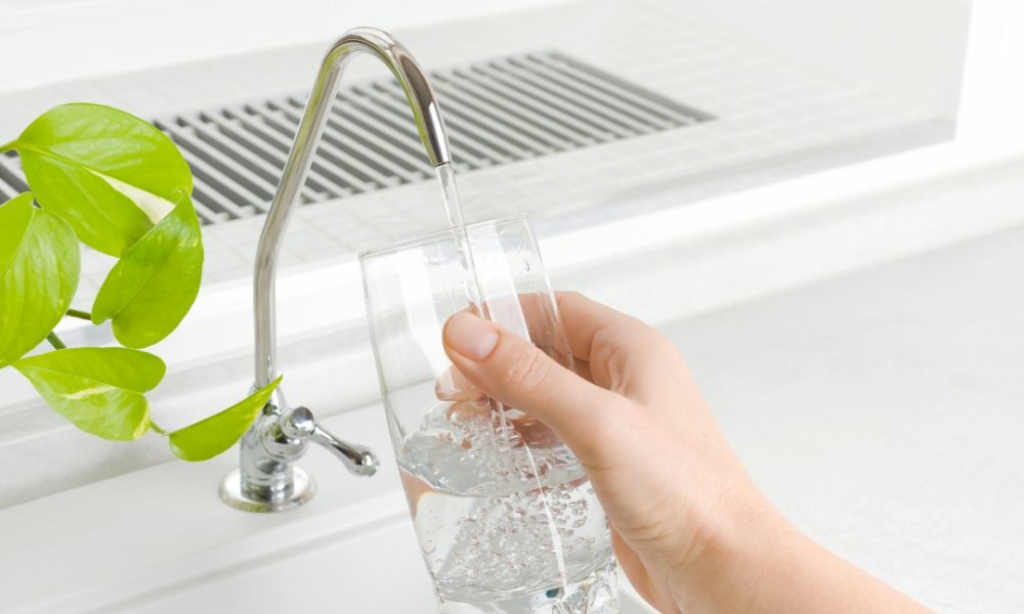Addressing a Leaking Tap
Remember to underestimate the significance of a leaking tap, even though it might seem like a minor annoyance. Addressing a leaking tap promptly can significantly impact your water bill and the integrity of your plumbing system.
In this article, we’ll explore the signs of a leaking tap, the pros and cons of DIY troubleshooting versus professional intervention, and help you decide whether to call a plumber or tackle the issue yourself.

Signs of a Leaking Tap
Identifying a leaking tap is usually straightforward. You’ll often hear that rhythmic, irritating drip, but sometimes, the leak might not be audible. Look for water pooling around the base of the tap or a constant dampness. Neglecting a leaking tap can lead to more than just a higher water bill; it can cause water damage to your fixtures and cabinets and even structural damage to your home. The constant moisture can also promote mould growth, creating a health hazard.
A leaking tap may be a minor plumbing issue. Still, it can save significant water over time, potentially leading to more significant problems if addressed. Here are some signs that indicate you should call a plumber to fix a leaking tap:
Dripping Water: The most obvious sign of a leaking tap is the sound of dripping water. A consistent drip when you turn off the tap indicates a leak.
Water Stains: Check the area around the tap and sink for water stains, discoloration, or damage. These can be signs that water is escaping and causing damage to the surrounding surfaces.
Increased Water Bill: A sudden increase in your water bill without a corresponding increase in usage could indicate a hidden leak, such as a dripping tap.
Mould or Mildew Growth: Excess moisture from a leaking tap can promote mould or mildew growth near the sink or faucet. If you notice these growths, it may indicate a hidden leak.
Reduced Water Pressure: A tap leak can sometimes reduce water pressure in the affected fixture. If the water flow seems weaker than usual, it could be due to a leak in the faucet.
Rust or Corrosion: Examine the tap and its components for any signs of rust or corrosion. Rust can weaken the structure of the faucet and lead to leaks.
Worn or Damaged Seals: Inside the tap are rubber or silicone seals and gaskets that can deteriorate over time. They may need replacement if you notice visible wear or damage on these components.
Difficulty Turning the Tap Off: If you find it increasingly difficult to turn off the tap entirely, it could be a sign of internal damage or wear causing the leak.
Puddles or Pooling Water: Look for puddles or pooling water around the base of the tap or on the countertop. It can be a clear indication of a leaking faucet.
Continuous Moisture: Even if there are no visible puddles, if the area around the tap always feels moist or damp, it may be due to a persistent leak.
When you notice any of these signs, it’s advisable to call a professional plumber to inspect and repair the leaking tap. Ignoring a leaking tap can not only waste water and increase your utility bills but also lead to more extensive water damage and potentially more expensive repairs in the long run. A plumber can identify the cause of the leak and make the necessary repairs or replacements to ensure your plumbing system functions properly.
When to Call a Plumber
While DIY can be a cost-effective solution, there are instances when calling a plumber is the best course of action. If you’re dealing with a complex tap system, need the necessary tools, or have attempted a DIY fix without success, it’s time to bring in a professional. Moreover, if the leaking taps are just one issue in a series of plumbing problems, a plumber can identify and address any underlying issues, preventing future leaks.
Benefits of Hiring a Plumber
Hiring a licensed plumber brings several advantages. Their expertise ensures that they correctly diagnose and fix the problem the first time, first and foremost. It saves you the frustration of multiple DIY attempts and prevents potential damage from escalating. Plumbers also have access to specialized tools and materials, which can be critical for certain repairs. Additionally, they can offer valuable advice on maintaining your plumbing system, potentially preventing future leaks and costly repairs.
The Plumber Hiring Process
When it’s time to call a plumber, finding the right one is crucial. Start by asking for recommendations from friends, family, or neighbors. Research online reviews and check for licenses and insurance. When you’ve narrowed your options, ask for quotes and estimates and inquire about additional fees. Before hiring, ask about their warranty and guarantee policies to ensure you’re covered if issues arise after the repair.
Also Read: 5 Crucial Warning Signs that You Need to Call a Plumber
Preventing Future Leaks
To avoid future tap leaks, regular maintenance is critical. Inspect your taps for any signs of wear and tear, and replace washers or seals as needed. Consider installing water-saving fixtures to reduce wear on your plumbing system. Be mindful of turning taps off gently to prevent undue stress on the components. Regularly check for water leaks and address them promptly to avoid further damage.
Hire the Best Plumber for Your Leaking Taps
A leaking tap is not just an inconvenience; it’s a problem that warrants attention. While troubleshooting can work for minor issues, knowing when to call a plumber is essential to prevent water wastage and ensure a lasting solution. Hiring a professional plumber brings expertise and specialized tools, potentially saving you time and money. So, don’t let a dripping tap linger; promptly protect your home and wallet.